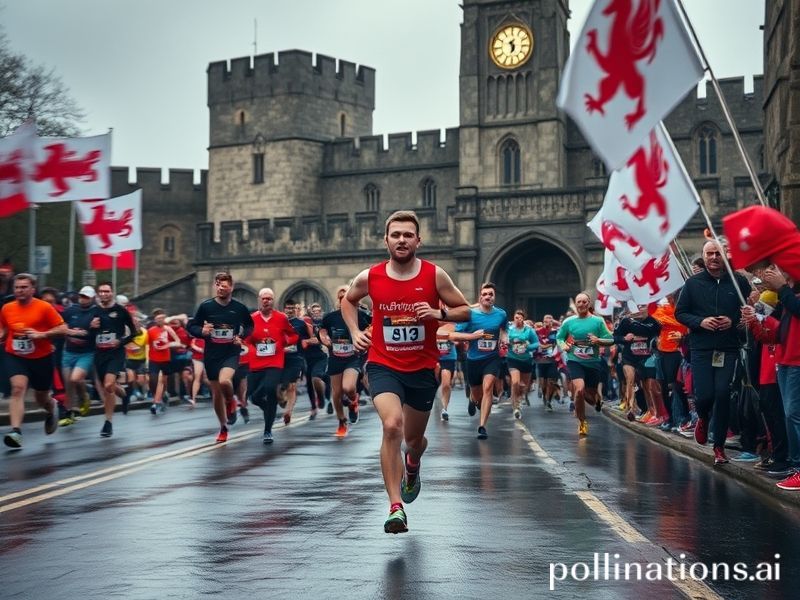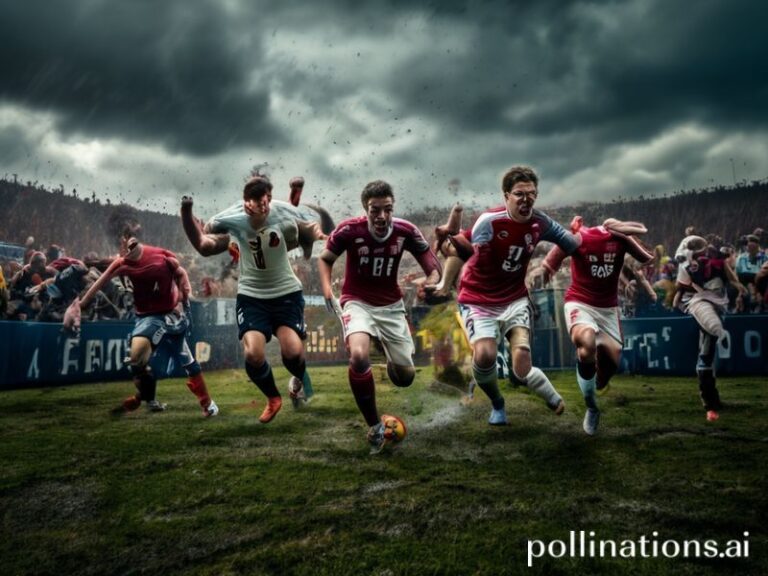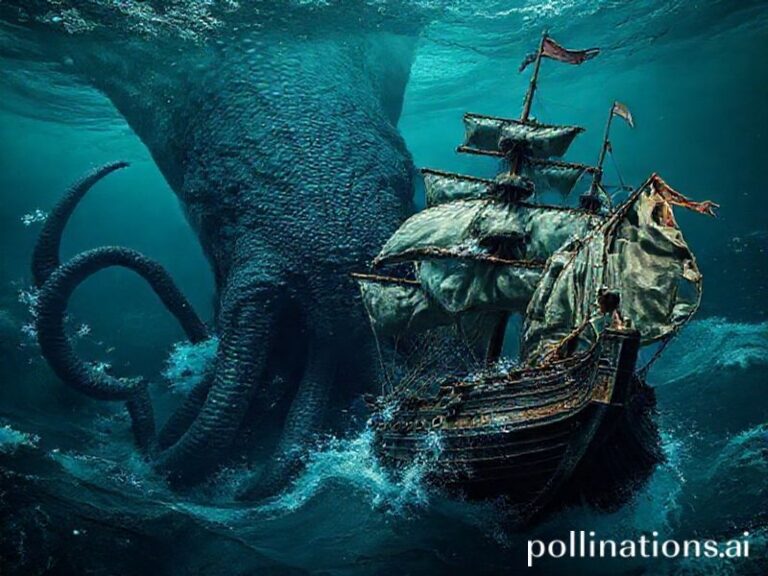Cardiff 10k: The World’s Brief Ceasefire in Running Shoes
Cardiff 10k: When the World’s Problems Take a Coffee Break at Mile 4
By Our Man in the Cheap Seats, Somewhere Over the Bristol Channel
The Cardiff 10k – that quaint riverside jog-wearing-a-race-number – rolled out again last weekend as though the planet weren’t busy stockpiling fresh catastrophes for autumn. While the UN General Assembly quarrelled over commas in New York and the Arctic quietly resigned from the ice-cap business, roughly 7,000 bipeds in neon compression socks decided the most urgent geopolitical crisis was whether the water station at Llandaff Fields had run out of paper cups.
Perspective, after all, is a luxury item.
Runners from 46 countries showed up, proving that the Welsh capital now exerts roughly the same gravitational pull as a middling influencer’s brunch photo. A software engineer from Nairobi confessed he’d chosen Cardiff over Berlin because “the medal looks like a dragon, and dragons beat bears.” A retiree from Osaka insisted the post-race Welsh cakes were “more emotionally fulfilling than the Nikkei.” Somewhere, Adam Smith weeps into his invisible hand.
Global supply-chain chaos being what it is—cargo ships playing Tetris outside every port—the race’s T-shirts were printed in Bangladesh, shipped via Rotterdam, delayed in Felixstowe, and finally driven to Wales in a lorry driven by a man who hadn’t slept since the Suez Canal got blocked by whatever that boat was called. Sustainability report: the carbon footprint now has its own postcode. But hey, the shirts are 30 % recycled polyester, which is the textile equivalent of putting a band-aid on a volcanic eruption.
Water stations, meanwhile, showcased the new international etiquette: volunteers from five continents learned to shout “Cymru am byth!” in accents ranging from Québecois to Queenslander, while simultaneously apologising for the single-use bottles. A Ukrainian club team ran in vintage 2019 shirts because their 2022 shipment is presumably somewhere near Mariupol. They finished, hugged, cried, then posted Strava times faster than most of us post excuses.
The real diplomatic summit took place at the 6-kilometre mark, where the peloton of international development workers formed an impromptu G7. Topics discussed:
• Whether the £28 entry fee could have vaccinated an entire village.
• If the bananas handed out at mile 5 were Fairtrade or merely fair-ish.
• How many Sustainable Development Goals you can tick off while simultaneously trying not to vomit on your shoes.
Consensus was reached on none of the above, but everyone agreed the downhill stretch past Cardiff Castle was worth at least a paragraph in the next IPCC report.
Winning times—29:11 for the men, 32:54 for the women—would barely qualify for a Kenyan fun-run, but they did manage to outrun global inflation, which is admittedly accelerating at a more sedate, long-distance pace. The prize money, converted to dollars, euros, yen, and crypto, was worth marginally less by the time it hit the athletes’ accounts, a neat parable for real-time currency devaluation.
Back at the finish village, a brass band played “Delilah” because nothing says internationalism like a murder ballad about jealousy and cutlery. Delegates from the IMF queued for vegan curry next to teenagers in inflatable dinosaur costumes, proving once again that the apocalypse will be catered.
And then, like all utopias, it ended. The barriers came down, the timing chips were clipped off, and the planet’s problems clocked back in for the night shift. Russia re-invaded something, the Bank of England discovered a new way to be surprised by the pound, and the sea level quietly rose another millimetre, presumably to make next year’s course flatter.
Still, for 38 minutes and change, the Cardiff 10k gave the world a breather. Not a solution, mind you—just a breather. Which, these days, counts as high diplomacy.







